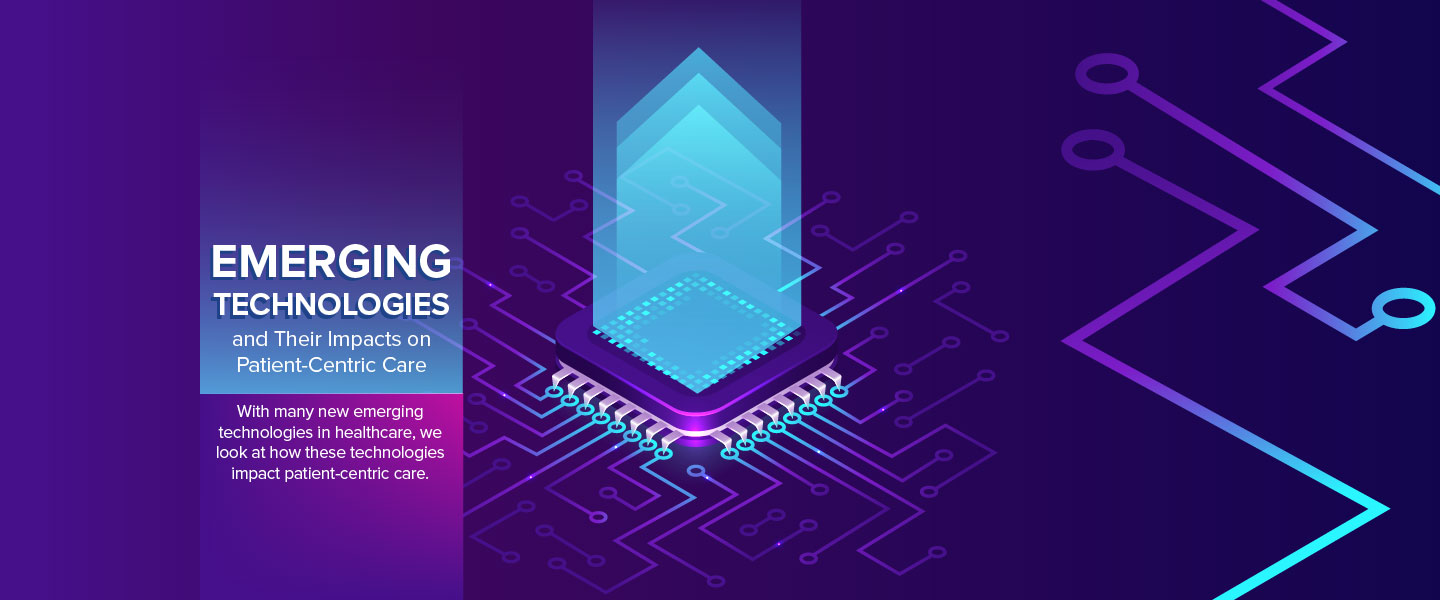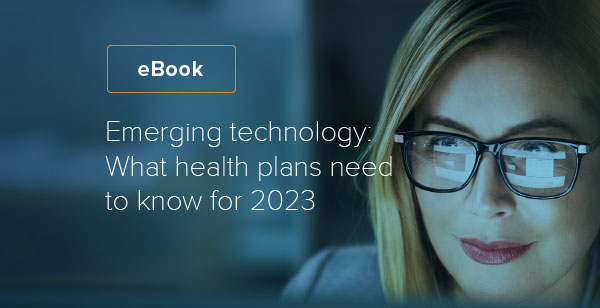With many new emerging technologies in healthcare, we look at how these technologies impact patient-centric care.
The Institute of Medicine defines patient-centric care as “providing care that is respectful of, and responsive to, individual patient preferences, needs and values, and ensuring that patient values guide all clinical decisions.” Payers and providers dedicated to delivering top quality healthcare have turned to technology to deliver patient-centric care. Digital adoption accelerated due to circumstances surrounding the pandemic, highlighting cracks in the healthcare system. A new era of digital-first healthcare has begun with many technologies to optimize patient outcomes and experience. According to a recent Accenture report “97% of healthcare executives believe continuous advances in technology are becoming more reliable than economic, political or social trends in informing their organization’s long-term strategy.” From advances in artificial intelligence aiding diagnostic decisions to technology that integrates data for an interoperable experience and streamlined communication between stakeholders, technology and healthcare are now an essential confluence of forces to better serve human health.
A report by Zion Market Research finds that the global demand for home healthcare was valued at $370 billion in 2020 and is expected to reach $839 billion by 2028, growing at around 10.1% between 2021 and 2028. A medical environment that encourages consistent collaboration and clear communication between patients, payers, and providers will benefit all parties involved. New technology in healthcare enables this critical collaboration between stakeholders allowing for true value-based healthcare.
Technology has been a critical resource across industries for many years. In the next era of digital health, we must not see technology as simply a “resource” but as an integrated piece of the foundation of healthcare organizations and the broader health system. Specifically, advanced healthcare technology allows for scaling a personalized health journey for patients – unlocking patient-centric care. From the foundation of electronic health records digitally storing patient information and their continued advancements to increase the interoperability of data storage and transfer among care organizations to aiding an open line of communication between payers, patients, and providers, emerging technologies are continuing to put the patient first. Having resources specific to a patient’s health and allowing for ease of communication to effectively map out care are a few examples of how the health system embodies patient-centric care.
A 2022 Digital Health study from Accenture points to the Metaverse Continuum as the next digital transformation for healthcare. The metaverse serves two primary functions: Creating the “Internet of Place” and the “Internet of Ownership”. “81% of healthcare executives say the metaverse will have a positive impact on their organizations, with nearly half believing it will be breakthrough or transformational.” Soon, new spaces in the metaverse will let us interact with members of our care team, no matter the distance or location. Healthcare organizations will shift part of their operations to the metaverse so their teams may collaborate in new ways based on data validated and authenticated by the patient.
Another example of an existing technology that has made advancements to shift with future demands is artificial intelligence (AI). Use cases are growing immensely due to their benefits in efficiency and customized care. Despite these positive trends, authenticity is still viewed as the compass and the framework that will guide use of AI in a genuine way. Healthcare technology will ultimately help streamline communication between healthcare providers and payers and provide faster treatment plans for patients, optimizing care, and increasing patient outcomes success.
To further patient-centric care, solutions for payer-provider collaboration, such as NaviNet®Open, help to streamline communications across a single, integrated platform that makes working together across parties in the health system more efficient. NaviNet Open is one of America’s leading payer-provider collaboration platforms, facilitating provider engagement, and generating trustworthy, actionable data throughout the continuum of care delivery. As a secure multi-payer platform, NaviNet Open enhances communication, boosts operating efficiency, cuts costs, and improves provider satisfaction. The technology lets payers and providers exchange vital administrative, financial, and clinical information in real-time.
Additionally, Eviti, Connect a clinical decision support and treatment validation platform, brings together payers and providers in the care of patients with cancer or autoimmune conditions. By streamlining the prior authorization process with Eviti® Connect, all parties are assured patients are consistently receiving high-quality, evidence-based care.
Emerging technology in healthcare is growing fast with innovations such as cloud computing, augmented reality, Internet of Things (IoT) connectivity, blockchain, and even drones to deliver prescriptions in a contactless manner. Patients, payers, and providers have an opportunity to align and benefit from technology in healthcare for better patient outcomes.
Editor’s note: This post was originally published in February 2021 and has been updated for comprehensiveness.








